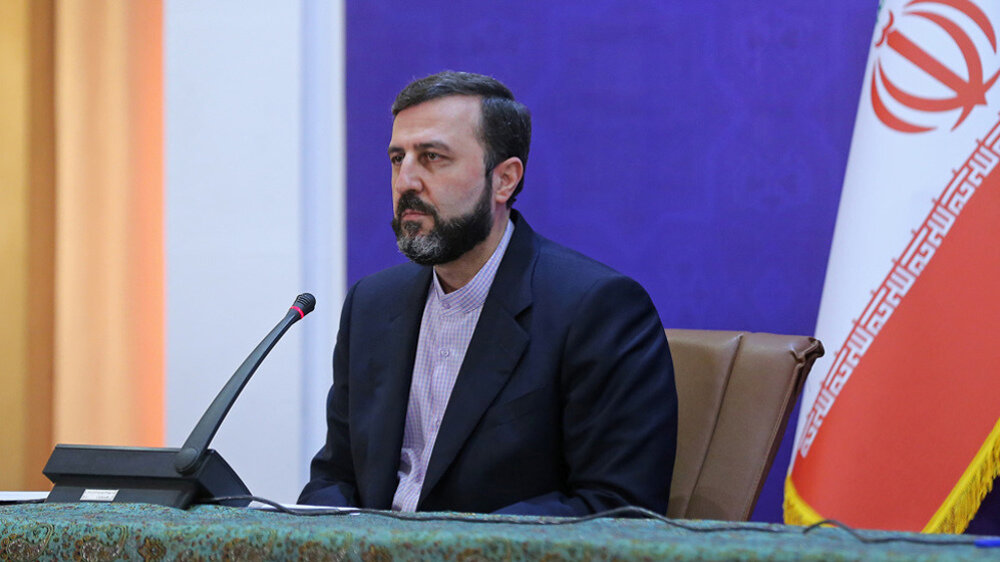‘Sanctions are slow-motion crimes against humanity:’ Iran’s deputy FM on Western sanctions

TEHRAN – Iran’s Deputy Foreign Minister for Legal and International Affairs, Kazem Gharibabadi, delivered a scathing critique of Western unilateral sanctions at the International Conference on Unilateral Coercive Measures and Access to Justice on Tuesday, calling them “slow-motion crimes against humanity” that weaponize economic suffering to punish ordinary civilians.
“Unilateral sanctions are not diplomatic tools—they are instruments of economic warfare. They deliberately and systematically suffocate societies, violate sovereignty, and deprive people of their fundamental human rights,” Gharibabadi declared.
His remarks came alongside a keynote address by UN Special Rapporteur Alena Douhan, who has extensively documented the humanitarian toll of sanctions globally.
Gharibabadi underscored Iran’s status as a “prime example” of a nation subjected to illegal extraterritorial sanctions for over 40 years, particularly under the U.S.-led “maximum pressure” campaign.
He argued that these measures have transcended political objectives to become “collective punishment,” crippling access to lifesaving medical resources.
“Cancer patients and those with chronic illnesses are denied treatment not due to a lack of capability, but because of the criminalization of basic financial transactions,” he stated, citing how international banks refuse to process payments for Iran under threat of secondary sanctions.
This has blocked imports of chemotherapy drugs, MRI machines, and even pediatric medications, leaving hospitals “paralyzed.”
The Iranian diplomat emphasized that such policies violate Article 25 of the UN Charter, which guarantees the right to health, and accused Western nations of “systematically obscuring” the human cost.
“Humanitarian exemptions exist only on paper. In practice, they are meaningless,” he said, noting that even food shipments and aid organizations face bureaucratic obstruction.
A call for global accountability
Gharibabadi outlined a three-point demand to the international community:
I. Legal Recognition: Classify unilateral sanctions as violations of international law when they infringe upon human rights or restrict humanitarian access.
II. Reparations: Establish enforceable mechanisms to compensate individuals, businesses, and nations adversely affected by sanctions.
III. Transparency: Implement defined steps to hold responsible those who excessively adhere to sanctions or exploit them for gain, particularly when this conduct leads to withholding humanitarian assistance.
He further criticized the “asymmetric information” perpetuating sanctions, arguing Western media downplays their “catastrophic impact on human dignity.”
“Silence is complicity. By normalizing these measures, we legitimize a system where might overrides right,” he asserted.
The speech also highlighted how sanctions erode due process. “Targeted individuals and entities receive no notice, no charges, and no chance to defend themselves. They are blacklisted based on vague accusations, without judicial review,” Gharibabadi said, condemning the extraterritorial reach of secondary sanctions that force third-party countries to sever ties with Iran.
As the 80th anniversary of the UN approaches, Gharibabadi urged a reckoning: “Will we uphold peace and multilateralism, or let coercion become the new norm?” For Iran, the answer is clear—decades of tyrannical sanctions demand not just condemnation, but concrete action to restore justice.
Leave a Comment